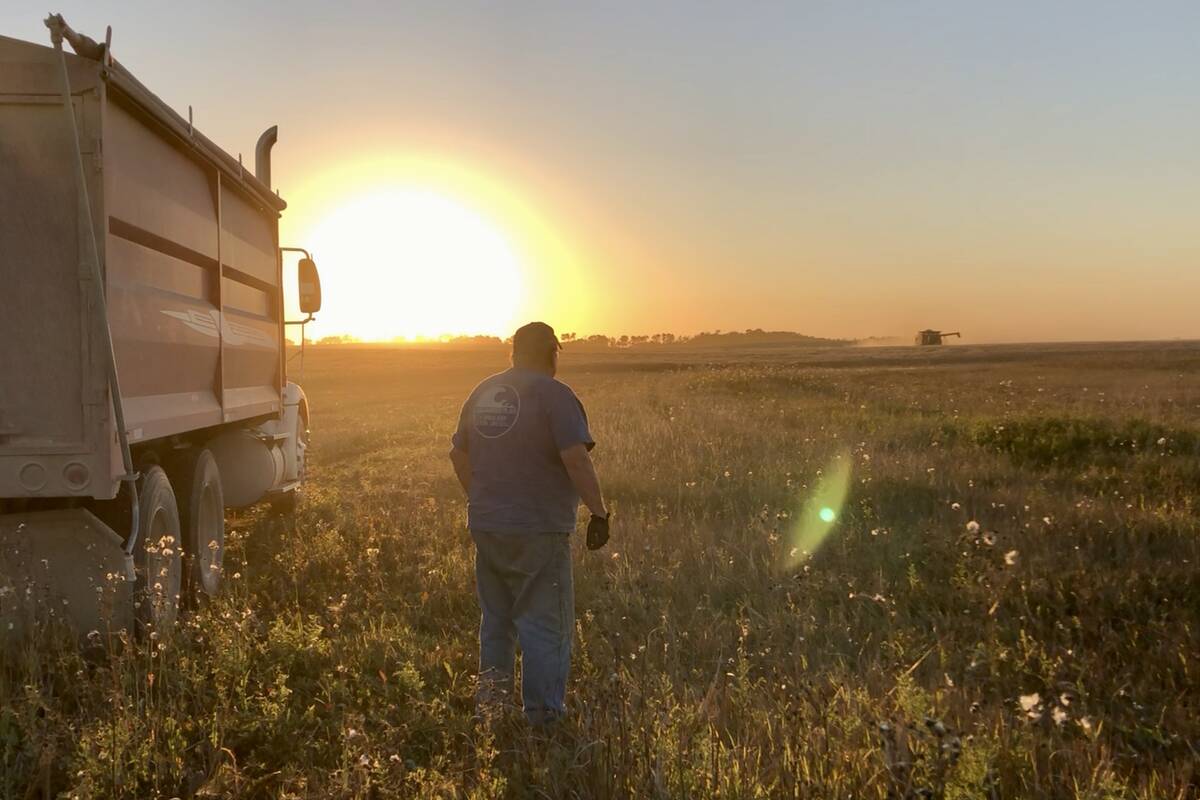Another Alberta strawboard plant designed to turn straw into board for furniture may soon end up in receivership.
“We’re just waiting to hear if the lender puts us into receivership or not,” said Neal Oberg, chief executive officer of Compak Forestburg Inc.
Oberg said they closed the doors of the plant one month ago after an investor decided not to invest $1.3 million into the $14 million plant.
“We were depending on it to continue operations,” said Oberg. “It’s damn sickening.”
With little cash in reserve, operators chose to close the plant and lay off its 48 workers instead of staying in business with no money to pay staff.
Read Also

VIDEO: Bittersweet harvest for this family farmhand
Bruce Burnett helps his brother harvest wheat and canola for the last time on the family farm in Manitoba where they both grew up.
“We didn’t have a lot of cash to continue operating.”
Oberg said the company is talking to its lender, Clarica, an Ontario-based life insurance company, to determine if Compak will continue to operate.
“We’d like to get it up and running in some shape or form.”
Bob Coutts, an investor in the company, remains optimistic the plant will reopen.
“We didn’t have enough funding if things didn’t go as budgeted and planned, and they didn’t.
“There’s still a lot of support for the project in our community.”
Forestburg’s plant is the second strawboard plant to close soon after it opened. AgraFibre, a particleboard plant in Wanham, Alta., was placed in receivership last fall, only months after it opened. It experienced financial and equipment start-up problems.
The Forestburg plant opened last year, and also had equipment problems that hampered production. Oberg said the concept is good, but the machinery and technology must be more dependable.
“The equipment needs to be modernized and made more efficient,” said Oberg of the equipment made in the United Kingdom.
Despite the problems, Oberg believes there is a future for strawboard plants on the Prairies. They proved it was possible to produce a low-cost board that was accepted by the market. The key is to find enough start-up funding.
“The right combinations of factors have to be put together.”
In July, workers were asked to concentrate on improving production at the plant. They increased output at the plant from 70 percent capacity to 100 percent capacity.
In the final two days of operation, the staff produced at 120 percent capacity.
“The workers were doing what was asked of them.”
The plant is capable of producing 18 million sq. feet. of three-quarters inch thick strawboard a year.
















